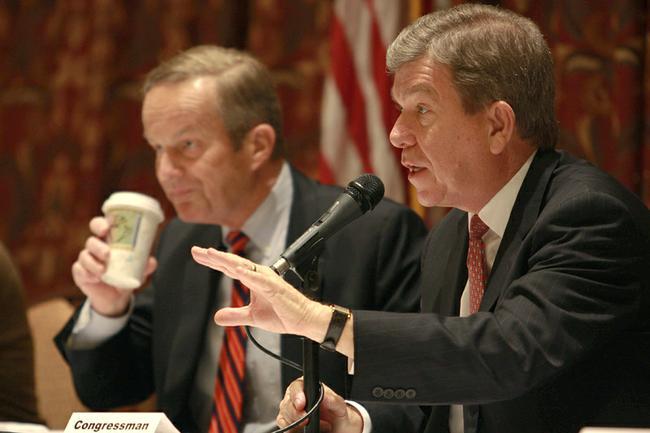Senators Claire McCaskill, D-Mo., and Roy Blunt, R-Mo., have started 2011 with proposals limiting federal spending and aimed at reigning in the nation’s deficit.
McCaskill introduced a bill Jan. 25 calling for Congress to repeal the section of the law which provides automatic pay raises to members of Congress. The bill is backed by Sen. John McCain, R-Az.
McCaskill spokeswoman Laura Myron said the effort is the beginning of several pieces of bipartisan legislation designed to reduce the deficit and cut federal spending.
A similar bill was proposed by Sen. Jim Matheson, D-Ut., the main difference being that Matheson’s proposed bill would take effect December 2012, whereas McCaskill’s bill wouldn’t kick in until February 2013.
McCaskill announced Tuesday that she and Sen. Bob Corker, R-Tn., will introduce the CAP Act to Congress. The bill will place caps on government spending, allowing only 20 percent of the gross domestic product to be allocated.
The bill will dramatically cut spending over the next 10 years.
“What Senator McCaskill and I are offering is a legislative straightjacket, a way of forcing Congress to dramatically cut spending over 10 years,” Corker said. “The beauty of the CAP Act is that it imposes fiscal discipline and smaller government, while incentivizing lawmakers to pass policies that promote economic growth.”
Caps on defense spending are among other pieces of legislation introducing Congressional reform.
Blunt was not listed as a cosponsor to the bill and his office did not return calls for comment as to whether Blunt would support McCaskill’s bills.
Blunt does, however, support a bill which restricts government spending to 20 percent of the GDP.
The difference between the legislation Blunt supports and the one McCaskill proposed is that Blunt’s does not limit the cap on spending during wartime. So, until the war is officially over it won’t have any effect.
“Nearly all Americans have faced challenges due to this economic recession, and most are trying to tighten their belts and find ways to stretch their dollars,” McCaskill said in a press release. “It’s about time the federal government did the same.”








